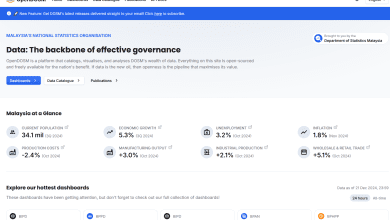By A. Jeyaraj
As more and more companies are employing slick marketing gimmicks and sales tactics to attract consumers to buy their products, people are tempted to buy products they don’t need. New and attractive packaging with bright colours and new design impacts a buyer’s purchasing decision to select a new product instead of the usual brand.
Many consumers do not voice out their grievances. They prefer to keep quiet and refuse to lodge complaints even after realising that they have been convinced by marketing tactics or have bought faulty products.
In developed countries, consumers are more particular about their rights and traders more responsible. This results in a more transparent and disciplined market. The Malaysian government has also embarked on a similar mission of building more awareness on consumer rights in its journey towards achieving the status of a developed nation by 2020.
Much has been said about the need to raise standards of consumer awareness. I wonder what has been done at grass root level to make the public aware of this. Many Malaysians at best only know how to rant over the ever increasing prices of goods and services, but do nothing.
I read in a magazine that in Japan if the price of a product especially a food item goes up, nobody buys it. The price comes down. Malaysians can do the same instead of complaining.
Consumer Profile Research, conducted by the Domestic Trade, Cooperative and Consumerism Ministry revealed that only 58 percent of Malaysian consumers were properly aware of their rights. Mat Pauzi Awang, Director of Consumer Movement Division under the ministry said the percentage is low, in spite of consumers being more aware of their basic rights.
I would like to share my shopping experience and what I have come across.
The brand of white coffee I buy is sold only in a few shops and lately when I went to buy coffee I noticed that instead of 15 sachets, there were only 12 sachets in the packet for the same price. When I went to a couple of other shops, the quantity was the same. The price used to range from RM13 to RM16.50 in different shops. In one of the shops I seldom go to, I noticed that a packet with 15 sachets was on sale at a price of RM18.50. The manufacturer has reduced the quantity by 20 percent and is selling for the same price. In this case I have to decide whether to continue buying the same brand or switch brands.
Instant coffee is sold in packets weighing 100g, 200g, 300g and 500g. It is up to the buyer to calculate which pack is cheapest. This can be said for many other products like soft drinks and snacks.
I buy instant noodles in spite of reading reports that it is not healthy. Normally each pack contains five packets and the weight of each packet varies from 70g to 90g. It is up to the buyer to work out which is most cost effective.
The packaging of some products especially detergents look very attractive and probably the container may cost more than the contents. Often people buy a product to keep the container.
So who is there to protect the consumer? Federation of Malaysian Consumers Associations (FOMCA) is a national non-governmental organisation, which is voluntary, not-for-profit, non-political, and civic oriented. It is the umbrella body for 13 consumer associations in Malaysia. FOMCA links the activities of consumers’ associations in Malaysia and works together with the national and international levels towards strengthening consumer protection. FOMCA’s main concern is not only value for money but more so, value for people.
Now and then FOMCA makes some statements in the media, other than that I am not sure what they do. Perak Consumer Association (PCA) used to organise talks and forums on consumer issues, but now PCA is defunct and there are no programmes. Consumer associations in other states are also not active.
The month of July is celebrated nationwide as ‘Consumer Month’ and I wonder how many people are aware of this. There is no publicity or activities to attract the people. The theme “Consumer Rights, Your Responsibility” is to help consumers understand their rights and regulations protecting them from being cheated by unethical traders. All this sounds good. What steps have been taken to educate the public?
The Ministry of Domestic Trade, Co-operatives and Consumerism has a Complaints Bureau (at Tingkat 1, Blok A, Bangunan Persekutuan Greentown, Jalan Dato Seri Ahmad Said, Ipoh), and I have approached them a couple of times with personal problems and they have solved them. There is a duty officer to receive complaints. The day after I made a complaint, I received a letter with details of my complaint. I wonder how many people are aware of this and make use of their service? The public can take their grievances to this department.
The same ministry is promoting Trade and supporting Consumerism. How is the ministry going to balance this?
Lack of awareness remains a basic consumer problem and for the time being the best policy is Buyer Beware.


